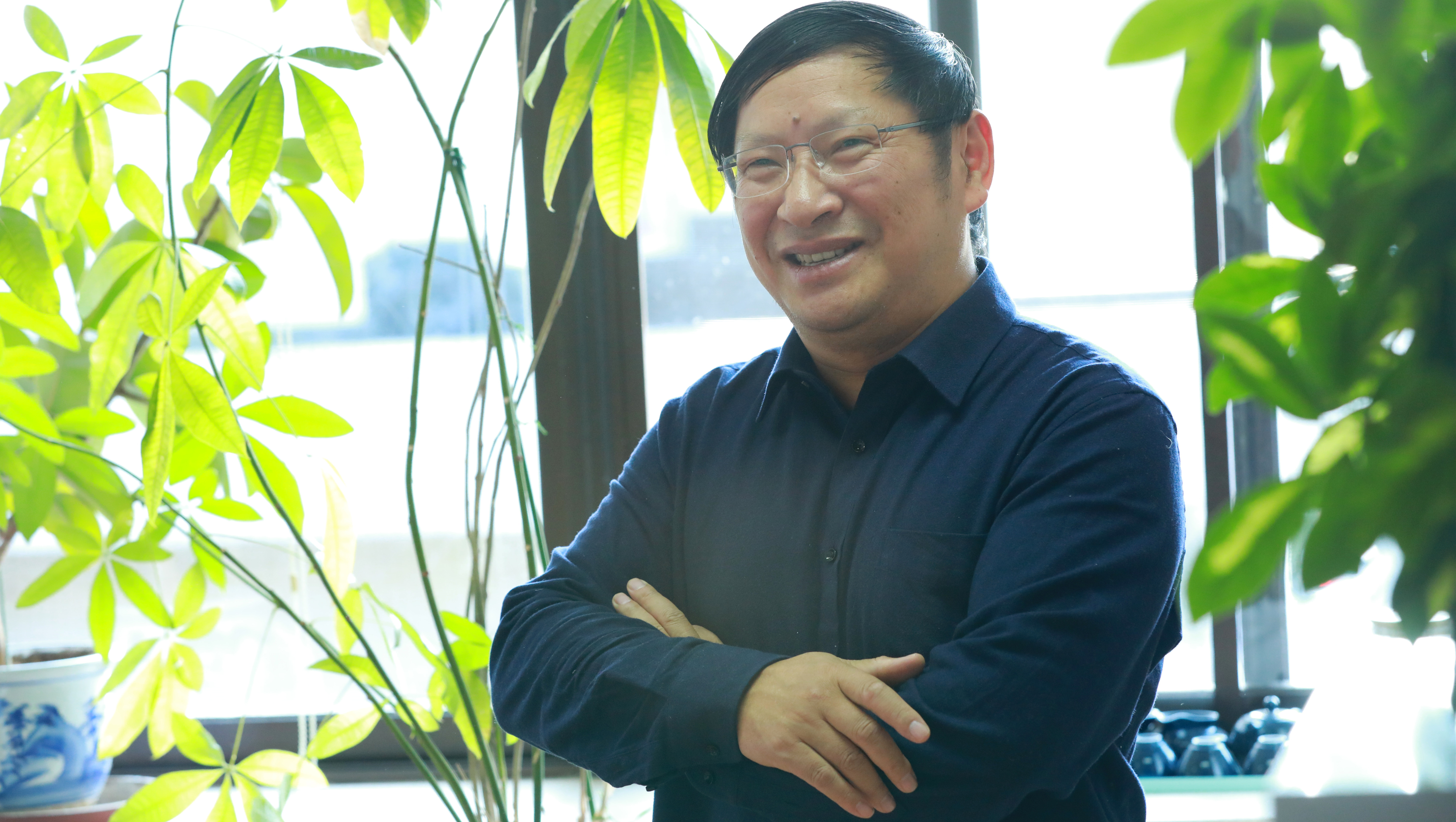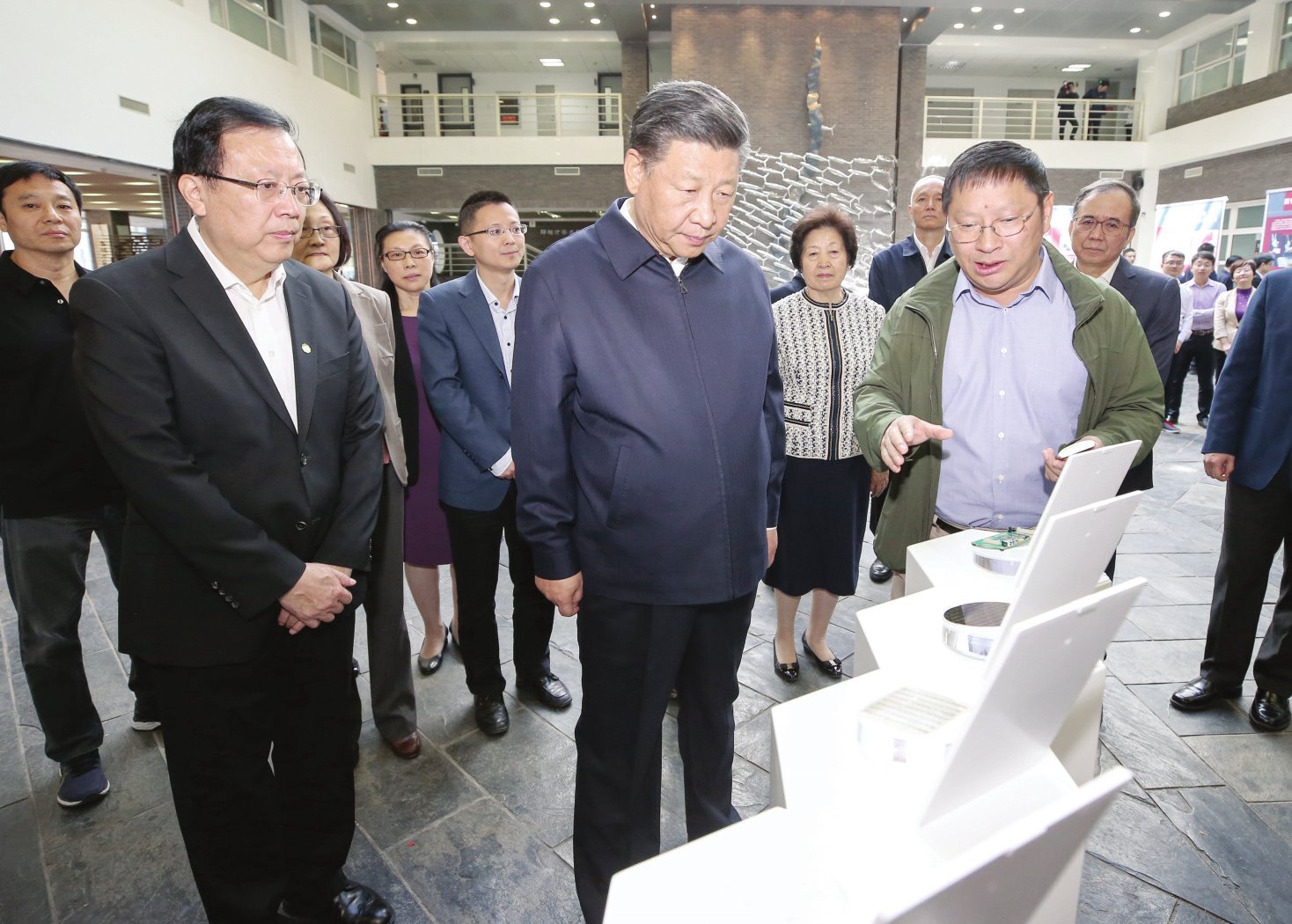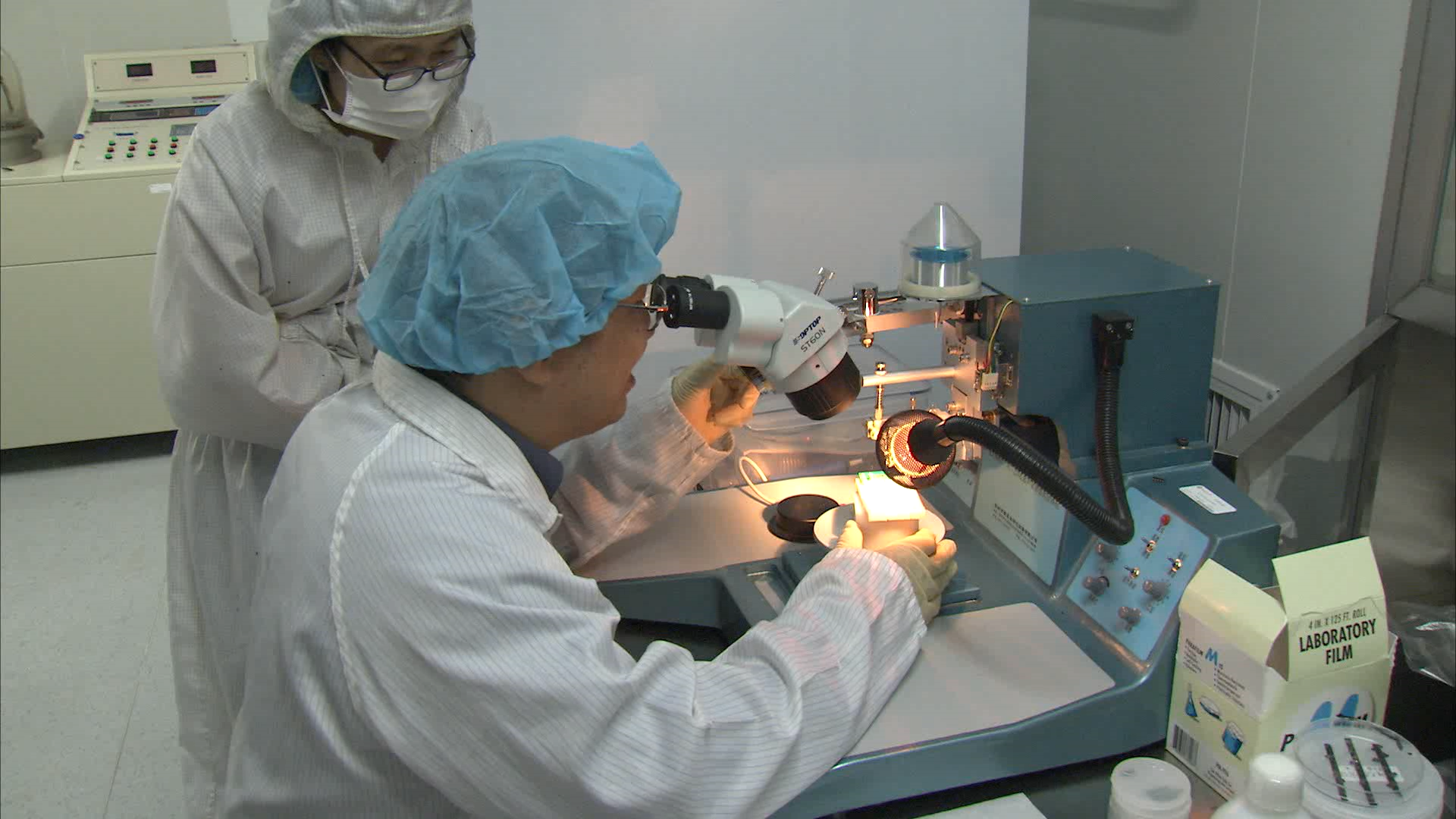[New Academicians 2019] Peng Lianmao: Dream the impossible and build the miraculous “tube”
Dec 30, 2019
Editor's Note: In November 2019, a total of seven academics from Peking University were elected as academicians, with five becoming members of the Chinese Academy of Sciences (CAS) and two being members of the Chinese Academy of Engineering (CAE). This article is the first installment in a five-part series featuring the academic career and research achievements of these newly elected academicians.
Peking University, Dec. 30, 2019: For 17 years, Peng Lianmao, professor at the School of Electronics Engineering and Computer Science (EECS) of Peking University, has been dedicated to the research of nanoelectronics together with his team. In 2017, they brought to reality the 5nm nanotubes, the research results of which was published in Science.
 Professor Peng Lianmao
Professor Peng Lianmao
Carbon nanotubes are used to build CMOS chips, the core component in electronic technology. The silicon-based transistors, widely used now, are outperformed by carbon nanotubes, which operate three times faster than Intel’s most advanced transistor with 25% reduction in energy consumption. 5nm carbon nanotube is a milestone for China’s information technology and brings promising possibilities for China to take a leap in the development of chips.
No pain, no gain
As the first class of students who entered university after the Cultural Revolution, Peng and others were well aware of the importance of science and technology in modernizing China, thus cherishing the opportunity to study and devoting themselves to China’s modernization. After graduating from the School of Electronics at Peking University, he took the advice of his tutor and went abroad for further study. In 1983, he passed the exam of CUSPEA (China-U.S. Physics Examination and Application) with a high score, continuing his research at Arizona State University before becoming a postdoctoral fellow at the University of Oslo and Oxford University.
Despite the poor research facilities 20 years ago in China, Peng came back to PKU without hesitation, eager to contribute to his motherland. For him, following the footsteps of the older generation of PKU professors who devoted their whole life to elevating China’s technological level has long been his ambition.
In 1999, Peng launched the research program of nanoelectronics in Nano Science and Technology Research Center of Peking University, particularly aiming at the invention of carbon nanotube integrated circuit.
The first seven years of exploration was beset with difficulties and saw little progress, and bad news came on a daily basis. Instead of getting drown in frustration, Peng and his colleagues continued to follow the advanced research worldwide and sought creative opportunities. They found happiness and motivation at every bit of progress and enjoyed the pure experiences of scientific research.
“The love for science ensures great pleasure not only in successful results, but also in arduous processes.” Peng believes that scientific researchers embrace failures the same way they applaud accomplishments.
For the people, for the country
A decade passed when the team discarded the traditional theory and finally made ultra-low power consumption tubes based on a new theory. The breakthrough ranked Peng’s team the same level with the global leading IBM, MIT and Stanford. Peng values the great effort by Chinese scientists, but also admits that it still takes a long time to bring the new carbon nanotubes into massive production.
The current limitations never stop Peng’s team from aiming high. At the start of Peng’s research, obtaining 20 million financial support for 5 years was a windfall. Today, having made an extraordinary progress, they deal with funds up to 100 million rather calmly, as they are now well-aware of the amount of hard work and financial input needed to lift the current research to an unparalleled level, so that China can earn leadership in chip technology in the near future.
In the past two decades, massive support from the government has boosted the progress of Peng’s research. “If our country pays enough attention to the field, it’s possible to take the lead in the world.” Peng says. Thanks to dedicated researchers like him, China turns from an underdeveloped country deprived of technological resources to the second largest economy with a more mature high-tech industry.
In 2018, President Xi Jinping visited Peking University. Deeply concerned about China’s fundamental researches and independent innovation, he stopped at the booth showing the “leading carbon chip technology” for a long time. Peng introduced to him that their products had become one of the world’s best and changed the monopoly situation of foreign peers, creating “Chinese miracles” one after another.
 Professor Peng Lianmao introducing the cutting-edge carbon chip technology to Chinese President Xi Jinping
Professor Peng Lianmao introducing the cutting-edge carbon chip technology to Chinese President Xi Jinping
Progresses in various fields all added to improvements in China’s comprehensive power, bringing confidence on the realization and rejuvenation of Chinese Dream. Listening to the report of professors from different academic fields, President Xi was very glad to know that researchers are fully committed to the cutting-edge technology of China. He encouraged them to forge ahead and assured them the government would back up fundamental researches in top universities.
A scientist, but more a teacher
Coming out of the laboratory, Peng shifts to his role of an affable teacher at PKU. He takes it as a teacher’s responsibility to cultivate talents and lead the next generation to excellence. “For the outstanding students at PKU, all they need is guidance to the right path with necessary learning resources.” Peng said.
Guided by his tutors at Peking University and during times when he studied abroad, Peng was moved by how these eminent professors lay primary emphasis on teaching students. However busy they were tackling research problems, they managed to set a schedule to meet with students, discussing their questions and confusions.
Influenced by his teachers and tutors, Peng attaches enormous significance to teaching and team building, winning such title as National Excellent Doctoral Dissertation Advisor and the Most Popular Professors of Peking University. From his perspective, the prosperity of a subject, instead of relying on a single scientist, is the result of innovative contributions made by the past generations.
Peng is convinced that the spirit of scientific research passed by from teachers to students is as important as technology itself. “For older generations, despite material deprivation, they worked conscientiously and painstakingly and achieved incredible fruits.”
Expecting the next generation to take advantage of the excellent working and living environment, Peng said, “Young people, instead of focusing only on earning money and publishing papers, are supposed to fight for a stronger nation and a better future for humankind.”
 Professor Peng Lianmao doing an experiment with his student
Professor Peng Lianmao doing an experiment with his student
About the future
“Too many unexpected tasks incessantly disrupt our research.” Peng sighed with resignation, “We have little time to fully concentrate on our research, and time in the laboratory is even more precious for me after being elected member of the Chinese Academy of Sciences.” Peng expects to have more time spent on scientific research itself, without being distracted by other affairs.
Ambitious goals, persistence in hard work and enthusiasm for science paved the way for Peng’s breakthroughs. As one of the newly elected members of the Chinese Academy of Sciences, Peng claims, “There is nothing to be proud of.”
It is disappointing to him that with so many revered scientists our country still lags behind in multiple areas. With a heavier burden on his shoulder, Peng will stick to his research humbly and intently regardless of any awards or honor he has won.
“Aim high, and dream impossible dreams.” Peng encouraged future researchers, “And enjoy the process of research.”
Written by: Yu Cong, Sun Leyi
Edited by: Yan Shengnan, Zhang Jiang
Photo credit to: Wang Tiantian


